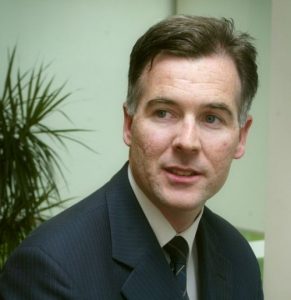
By Susan Gately - 05 November, 2016

Dr Philip Boyle
Dr Phil Boyle, the renowned fertility expert and GP, who has perfected a form of natural family planning to help couples with infertility problems to have a baby, has opened a new clinic in Dublin which is open to all committed couples, not just those who are married. If a couple have been living together for 2 years without a formal marriage, they may receive treatment with Neo Fertility.
Dr Boyle worked for many years at the FertilityCare™ Clinic in Galway using NaPro Technology (which comes from the United States), but this was only available to married couples – a stance that led to a complaint being lodged against him with the Medical Council’s Fitness to Practise Committee (FPC) in 2010.
In September this year, Dr Boyle branched out to establish a new form of fertility treatment incorporating innovations that he has made over the years. Now working from the Beacon Clinic in Dublin, Dr Boyle is offering what he calls ‘Neo Fertility’ to couples with fertility problems, including those who are not formally married.
“The reason for branching out is because if a doctor goes to the United States and trains in NaPro Technology, they won’t be doing at least 50 per cent of what we do in clinical practice, so we felt we needed a new name to reflect that,” he told CatholicIreland.
“We do an awful lot of extra things with regard to diet, nutrition, and immune modifying treatment that aren’t routinely done in the States,” he added. “Also, the way we do our hormone assessment and treatment is different to what Americans are doing.”
The other reason for the change, he said, is that we have “a different moral compass to the States.”
“One of the big issues that came up for us some years ago was the issue of marriage status and fertility treatment. With the way things have gone in Ireland there are lots of couples living a committed married-like relationship without making it formal and we felt that we needed to meet these people and help them.”
Dr Boyle said he believed that marriage was in the best interests of the man, the woman and the child and he would “encourage couples to consider marriage – not to abandon the good and the value that marriage is.” At the same time, however, he would “not make it [marriage] a prerequisite for us to see them.”
He said that in the United States, by contrast, the ethical code for NaProTechnology treatment recommends: “Get married first and then we’ll do your fertility treatment”. Instead, in Neo Fertility, a couple will be treated if they are “living and acting and behaving like a married couple.” The attitude at Neo Fertility is: “We’d encourage you to make a better decision [to marry] but we’ll work with you where you are at the moment.”
Dr Boyle graduated in Medicine from University College Galway (now NUIG) in 1992 and is currently President of the Institute for Restorative Reproductive Medicine. This is “an umbrella term that embraces Neo, NaPro or any restorative approach to human reproduction.”
He is currently treating around 400 couples for infertility. He says that one of the most exciting fertility breakthroughs is that there is now the capacity to interpret a couple’s fertility potential even before they try to get pregnant. He considers “fertility to be a problem even before you try to get pregnant.”
He explains: “If we see you track the signs of your fertility and we find red flags with an abnormal bleeding pattern, limited mucous or severe premenstrual symptoms, we can warn couples and say before you even try you should balance your cycle in advance and then you’ll find that your risk of miscarriage will be reduced and you tend to conceive a healthy pregnancy faster.”
Balancing the cycle involves “proactively intervening”, using diet, lifestyle, supplements and, on occasion, medication. Success is hard to measure, says the doctor. Overall, there is around a 50 per cent success rate, but it varies depending on the age and medical condition of the woman. “If you’re 30, trying for a year, no medical investigation, the chances are high. If you’re 42 and you’ve been trying for ten years and you have stage 4 endometriosis,” he says, percentages are going to be lower.
More information about Neo Fertility is available at www.neofertility.ie.